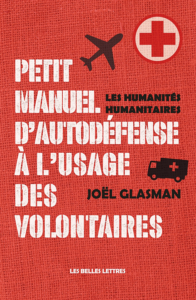
War, Disaster and the Global Aid Market
Gilles Carbonnier
Hurst & Oxford University Press | 2015
Publisher’s comments
“While the booming humanitarian sector faces daunting challenges, humanitarian economics emerges as a new field of study and practice, one that encompasses the economics and political economy of war, natural disasters, terrorism and humanitarianism. Carbonnier’s book is the first to present humanitarian economics to a wide readership, defining its parameters, explaining its utility and convincing us why it matters. Among the issues he discusses are: how are emotions and altruism incorporated within a rational-choice framework? How do the economics of negotiations with combatants, and shed light on the role of aid in conflicts? What do catastrophe bonds and risk-linked securities hold for disaster response?
As more actors enter the humanitarian marketplace (including private firms), Carbonnier’s revealing portrayal is particularly timely, as is his critique of the transformative power of crises.”
Is the humanitarian sector an industry, a market? How is its growth structured and how efficiently so for its beneficiaries? To what extent is economic analysis providing an unprecedented interpretative framework on international aid policies, organisations and individuals involved in the sector? And ultimately, how can the study of humanitarian crises in turn enhance economic considerations? While many books attempt to question the meaning or practicality of humanitarian action, Humanitarian economics complements the contemporary analyses of crises and the many challenges facing the aid sector using an innovative disciplinary approach. Humanitarian economics is thus presented as a new field of study and practice. It provides an approach and instruments, both theoretical and empirical, designed to open new ways of thinking in planning interventions. From then on, the author advises us to recognise that the parties involved in a conflict or the stakeholders present during a crisis act as any rational agent by seeking, for example, to maximise the cost-benefit ratio and by acting in an opportunistic manner, while also including self-esteem and the need for recognition, or hatred and the desire for revenge, or even the notion of military necessity; in short, the relation to human life. A process that forces readers to immediately resolve the “epistemological” tension between an economy based on the search for profit and humanitarian action led by an altruistic commitment.
Why now? One rather wonders “why so late?”, when global health, the pharmaceutical markets and AIDS-related issues revealed during the 1990s the disturbing backstage of conflicts of interest and power relations that were central to the analyses of political economics. Several factors lead us to consider humanitarian economics as a useful field of study when planning for the future.
As part of a historical approach, this 25-year long reflection by the author has its origins in the issue of the “market” of hostage-taking, which continues to exist despite increasingly elaborate international conventions. International Humanitarian Law (IHL) violations have been the subject of many analyses by jurists, historians, politicians and ethicists, but it was not until the end of the Cold War that economists began to take an interest in certain humanitarian issues, namely those related to the behaviour of combatants, the treatment of prisoners, including ransom demands. Gradually, economics brings in the notions of costs, profits, values, markets, and guides the behaviours and decisions concerning the interactions between stakeholders, international aid policies or the management of risks and opportunities. Behavioural economics allows the evolution of social norms and thought patterns to be included as essential variables in the decision-making process of armed groups, for example in the context of humanitarian negotiations.
From a methodological point of view, Carbonnier reveals the possibilities offered by new technologies and the management methods of humanitarian agencies, which result in an unprecedented collection of quantitative data for economic analyses. Moreover, each of these opportunities represents an ethical challenge that the author invites us to examine in order to impose a form of ethics in a discipline where it is not systematic, unlike the biomedical field which is very present in the humanitarian sector.
Finally, the transformations of the humanitarian sector are all arguments for taking hold of economics and its critical potential. With its steady growth over the past 30 years, an aid budget of some 28 billion US$ in 2015 and hundreds of thousands of employees, the humanitarian sector is significant. Beyond the traditional aid system, the increasing involvement of the private sector can no longer be ignored. How are supply and demand structured? In what terms do economic tools analyse the market and the effectiveness of aid, its failures, its inconsistencies? To move forward, Carbonnier identifies four contexts to establish the basis of his analyses and to overcome the opposition between emergency and development: economics of war, economics of terrorism, economics of disasters and economics of survival.
Gilles Carbonnier has one of these audacious academic profiles that swings between practice, research and teaching along a common thread: that of field experience. Following a thesis on the aid conditionality in war-torn countries, he joined the ICRC in various countries affected by armed conflicts such as Iraq, the Democratic Republic of the Congo and Sri Lanka. Senior Lecturer at Sciences Po Paris, Professor at the Graduate Institute of International and Development Studies (Geneva) and administrator for MSF-Switzerland, his knowledge of international NGOs and his academic activities incite him to further explore a subject area of the humanitarian sector that is still largely ignored. Contempt of economists for humanitarian action, which has remained the prerogative of other social sciences. Or indifference of humanitarians for a discipline whose culture they feel is distant or even opposed to theirs? Carbonnier’s work reconciles economics, political economics and emotions. He advocates the strengthening of multidisciplinary academic collaborations and interactions in the field in order to better understand and prevent the mechanisms of crises. A proposal which will most certainly be well received as the sociology of the sector is changing by establishing an increasing number of links with the world of management and business. It is regrettable that the book is not translated into French, but we hope that this is only a matter of time.
Virginie Troit • General delegate of the French Red Cross Fund
Translated from the French by Marc Duc


